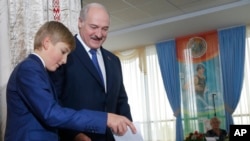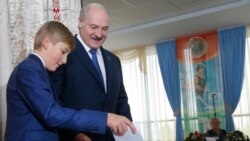Belarusian President Alexander Lukashenko won his fifth term in a landslide. According to official results, he received more than 83 percent of the vote, with none of the other three candidates garnering more than 5 percent. But observers with the Organization for Security and Cooperation in Europe noted that the elections fell far short of international standards.
There were serious problems with the counting and tabulation of votes, the composition of territorial and precinct election commissions, as well as a lack of fundamental reform to Belarus’ flawed legal framework governing elections. Moreover, there was unequal coverage of opposition candidates by state-owned media. As the OSCE’s chief observer, Kent Hasted, said, “it is clear that Belarus still has a long way to go towards fulfilling its democratic commitments.”
While the United States welcomed the peaceful conduct of the elections, the U.S. also expressed its disappointment that the elections in Belarus fell far short of OSCE standards. “A free and vibrant media, space for civil society organizations and opposition parties to operate, and full access for international and domestic election observers are essential to ensuring free and fair elections,” State Department Spokesperson Mark Toner in a written statement.
“We commend the participation of opposition political parties and independent media,” said Mr. Toner, “but the inability of international and domestic monitors to observe the vote count, and the almost complete absence of opposition party or independent members on election commissions, are inconsistent with these democratic processes and norms.”
The United States calls on Belarus to honor the U.S.-Belarus December 2010 joint statement in which “Belarus acknowledges that enhanced respect for democracy and human rights in Belarus remains central to improving bilateral relations and is essential to the progress of the country and its citizens.” Doing so will strengthen Belarusian sovereignty and independence and pave the way to improved bilateral ties on the basis of democratic values and human rights.






